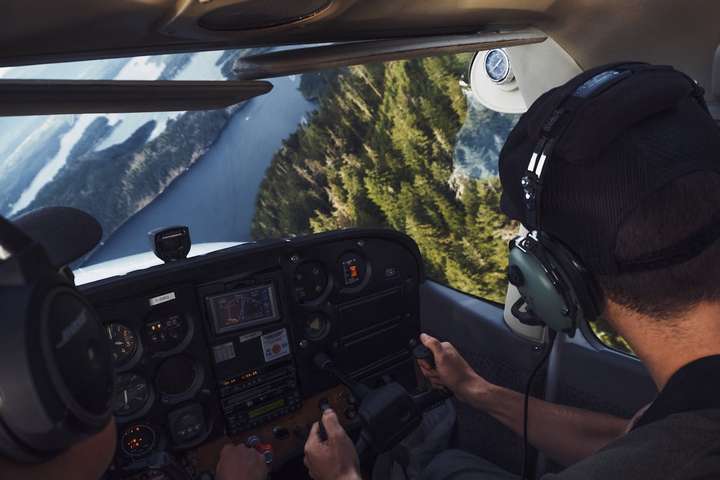An interesting and distinct career path full of potential and challenges is provided by becoming an independent pilot. Beyond the excitement of flight, there are a lot of little-known facets of the work. Independent pilots need to possess several different capabilities, ranging from technical proficiency to leadership abilities. They handle challenging circumstances and adjust to constantly shifting circumstances.

Learn six fascinating facets of being an independent pilot that demonstrate the range and complexity of this challenging yet fulfilling career.
Capabilities of Leadership
Independent pilots need strong leadership qualities since they often must make important choices under duress. Pilots need to demonstrate excellent leadership qualities to handle emergencies or decide what to do in unforeseen circumstances. This entails not only leading oneself but also guiding passengers and working with ground workers efficiently. Pilots maintain the effectiveness and safety of their flights by exhibiting decisiveness and the capacity to maintain composure under pressure.
Technical Knowledge
Technical competence, which includes a wide variety of knowledge about aircraft systems, mechanics, and navigation, is crucial for independent pilots. Pilots must be proficient in evaluating weather data and forecasts to make well-informed decisions concerning flying conditions. They must also stay current on aviation rules to ensure adherence to safety regulations. A solid understanding of various equipment, including avionics systems, autopilots, navigation aids, and aircraft ground power units, is essential for independent pilots. With the ability to handle any technical problems that may develop during a flight, this technical experience guarantees that pilots can operate their aircraft safely and effectively.
Communication Proficiency
Clear radio contact with air traffic controllers and other aircraft is essential to preventing misunderstandings and ensuring effective coordination. Pilots are also required to advise passengers about procedures with concise and clear safety briefings. Effective communication is even more important in emergencies when pilots must properly and calmly relay vital information to handle the situation and ensure safety. These abilities aid pilots in handling conversations and guaranteeing all parties agree.
Situational Intelligence
Pilots must always be aware of everything around them, including other aircraft, the terrain, and the weather. Making educated decisions and averting any risks are much easier with this insight. In order to maintain accurate navigation, pilots must use instruments, maps, and landmarks to monitor their position. Pilots can detect and reduce risks through ongoing risk assessment. To improve overall flying efficiency, effective situational awareness integrates experience, vigilance, and observation. Furthermore, keeping abreast with the most recent technical developments helps pilots improve their situational awareness and decision-making skills.
Ongoing Education
For independent pilots to remain proficient and aware of the most recent advancements in aviation, they must pursue continual learning. They need to get certified and continue their education to maintain and develop their talents. Pilots can better prepare for a range of obstacles they may encounter in real-world scenarios by participating in scenario-based training. By attending conferences, workshops, and networking events, pilots can further their professional growth and remain up to date on developments in the sector. By committing to ongoing education, pilots can retain a high level of competency by being able to adapt to new aviation practices, rules, and evolving technologies.
Adaptability and Flexibility
Pilots who possess these qualities are better equipped to deal with the unpredictability of aviation. Pilots need to be very flexible in their planning and operations because they must respond to shifting timetables, weather patterns, and a wide range of customer needs. In order to adjust to various situations, pilots also need to manage resources, including time, fuel, and aircraft capabilities. It is through this continued flexibility and responsiveness that pilots can negotiate the ever-changing aviation environment successfully. Furthermore, pilots who are receptive to novel concepts and methods are better equipped to handle unforeseen difficulties.
Conclusion
For productivity and safety, clear communication and situational awareness are essential. You stay current on new laws and technologies through ongoing education. Being adaptive and flexible will help you deal with aviation’s unpredictability. You’ll have a better understanding of the responsibilities and benefits of being an independent pilot after you grasp these elements. Accept these difficulties and relish the special chances this line of work provides.

